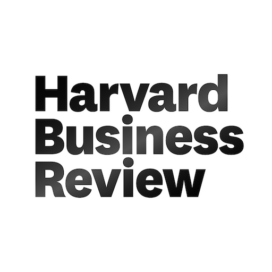‘Unpatriotic Loophole’ Targeted by Obama Costs Taxpayers $2 Billion
Published: December 3, 2014 / Author: Zachary R. Mider

U.S. companies that have already carried out inversions are likely to cost the government a record $2.2 billion or more in lost tax revenue next year, double the amount in 2014, according to calculations based on companies’ financial results.
That doesn’t include the impact of companies that shift their legal addresses abroad in the future, which one Congressional study pegged at about $2 billion a year over the next decade. Since the first inversion in 1982, the deals have cost more than $9.8 billion in inflation-adjusted dollars, the calculations based on data compiled by Bloomberg show.
In an era when tax rates paid by U.S. companies overall have declined, those that inverted reduced their taxes far more than competitors did. They were able to lower their effective tax rates between 6.6 and 17.4 percentage points more than peers that didn’t take a foreign address, the calculations show.
The data highlight how the U.S. government is paying the price for inversions it allowed to happen years or decades earlier. Even if Congress or President Barack Obama, who has called inversions an “unpatriotic tax loophole,” were to stop them today, the erosion of the tax base by past deals will continue to accelerate.
Many inverted companies are using their tax edge to out-compete U.S. rivals or buy them. Actavis Plc, a drugmaker with roots in New Jersey and California, took a legal address in tax-friendly Ireland last year. Since then, it has struck deals to acquire four U.S. competitors and slash their tax bills by hundreds of millions of dollars.
Winners and Losers
“It’s a system that creates an artificial group of winners and losers,” said Bret Wells, a professor at the University of Houston Law Center who has testified before Congress on tax policy.
Inversions have drawn increasing attention this year, including the current debate over Obama’s nomination of Antonio Weiss as a Treasury undersecretary. Some Democratic senators have objected to Weiss because the investment banker worked on Burger King Worldwide Inc. (BKW)’s pending inversion to Canada.
Data compiled by Bloomberg show that U.S. companies that are already inverted will earn a record $32.7 billion before taxes next year, more than double this year’s profit. The growth mostly reflects profit expansion at companies such as Actavis and Valeant Pharmaceuticals International Inc. (VRX) that inverted more than a year ago.
Tax Advantage
To determine the amount of taxes these companies are avoiding, Bloomberg compiled the financial results of 15 companies that inverted between 1994 and 2009, and compared their effective tax rates during the three years before and after their address changes with those of firms in the same industries that didn’t invert.
Measured by the amount of tax expense they recognized under accounting rules, these businesses lowered their average tax rate to 15.7 percent from 33.5 percent. That means they enjoyed a decline of 17.8 percentage points while their competitors cut their rate by 0.4 percentage point — a relative tax advantage of 17.4 percentage points.
Considering actual cash taxes paid rather than accounting expense, the tax advantage is about 6.6 percentage points. Inverted firms reduced their rate to 13 percent from 21.3 percent by that measure, while peers cut it by 1.8 percentage points.
Ingersoll-Rand Shifts
The example of Ingersoll-Rand Plc (IR), a New Jersey manufacturer that shifted its legal address to Bermuda in 2001, shows how much tax savings is possible. The company lowered its effective tax rate under accounting rules to 12 percent from 34 percent, during a time when competitors had only a 6-point decline. It has since shifted addresses again, to Ireland.
Misty Zelent, a spokeswoman for the company, declined to comment. David Belian, a spokesman for Actavis, also declined to comment.
Based on the total amount of profit inverted companies will earn this year, the tax-rate improvement from the Bloomberg calculations, of 6.6 to 17.4 percentage points, suggests that inverted companies will save $1.1 billion to $2.8 billion. Based on Wall Street brokerages’ estimates of next year’s profits, the potential savings is $2.2 to $5.7 billion next year. In all, the U.S. estimates it will collect about $389 billion in corporate income taxes in the current budget year.
Burger King, Medtronic
None of those figures include the impact of inversions that have yet to be completed. Seven companies are currently planning to invert. The queue includes Burger King as well as Medtronic Inc., which would be the biggest company ever to complete such a transaction.
Most of these pending deals would be prevented by measures proposed by Congressional Democrats that would stop inversions carried out through a takeover of a smaller foreign company. A projection from Congress’s nonpartisan Joint Committee on Taxation, in May, estimated that such a bill would bring in $19.5 billion in otherwise forgone tax revenue over the next decade.
Bloomberg’s calculations follow the methodology used in a 2004 paper in the National Tax Journal by James Seida of the University of Notre Dame in Indiana and William Wempe of Texas Christian University in Fort Worth. That study, examining the accounting expense for tax recorded by 12 inverted companies, found a decline of about 7.6 percentage points compared with peers.
Related Stories

Faculty in the Media
Research: How to close the gender gap in startup financing

Faculty in the Media
How to battle boredom at work

Faculty in the Media
Dull happens: Here’s how to stop boredom from impeding productivity

Faculty in the Media
Opinion: Boeing’s new boss should drop the suit and consider a hoodie
